
-
 Trump announces tariffs on Iran trade partners as protest toll rises
Trump announces tariffs on Iran trade partners as protest toll rises
-
Sabalenka favourite at Australian Open but faces Swiatek, US threats

-
 Gay Australian footballer Cavallo alleges former club was homophobic
Gay Australian footballer Cavallo alleges former club was homophobic
-
Trump has options on Iran, but first must define goal

-
 Paris FC's Ikone stuns PSG to knock out former club from French Cup
Paris FC's Ikone stuns PSG to knock out former club from French Cup
-
Australia's ambassador to US leaving post, marked by Trump rift

-
 Slot angered by 'weird' Szoboszlai error in Liverpool FA Cup win
Slot angered by 'weird' Szoboszlai error in Liverpool FA Cup win
-
Szoboszlai plays hero and villain in Liverpool's FA Cup win

-
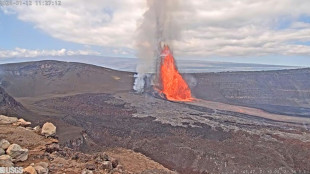 Hawaii's Kilauea volcano puts on spectacular lava display
Hawaii's Kilauea volcano puts on spectacular lava display
-
US stocks at records despite early losses on Fed independence angst
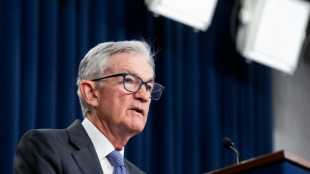
-
 Koepka rejoins PGA Tour under new rules for LIV players
Koepka rejoins PGA Tour under new rules for LIV players
-
Ex-France, Liverpool defender Sakho announces retirement

-
 Jerome Powell: The careful Fed chair standing firm against Trump
Jerome Powell: The careful Fed chair standing firm against Trump
-
France scrum-half Le Garrec likely to miss start of Six Nations

-
 AI helps fuel new era of medical self-testing
AI helps fuel new era of medical self-testing
-
Leaders of Japan and South Korea meet as China flexes muscles
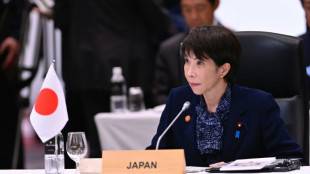
-
 Trump sets meeting with Venezuelan opposition leader, Caracas under pressure
Trump sets meeting with Venezuelan opposition leader, Caracas under pressure
-
Australia captain Alyssa Healy to retire from cricket

-
 US 'screwed' if Supreme Court rules against tariffs: Trump
US 'screwed' if Supreme Court rules against tariffs: Trump
-
NATO, Greenland vow to boost Arctic security after Trump threats

-
 Israel to take part in first Eurovision semi-final on May 12
Israel to take part in first Eurovision semi-final on May 12
-
How Alonso's dream Real Madrid return crumbled so quickly

-
 Ex-Fed chiefs, lawmakers slam US probe into Jerome Powell
Ex-Fed chiefs, lawmakers slam US probe into Jerome Powell
-
Former Panama leader on trial over mega Latin America corruption scandal

-
 Trump keeping Iran air strikes on the table: White House
Trump keeping Iran air strikes on the table: White House
-
Paramount sues in hostile bid to buy Warner Bros Discover

-
 Ugandan opposition leader Bobi Wine warns of protests if polls rigged
Ugandan opposition leader Bobi Wine warns of protests if polls rigged
-
Airbus delivers more planes in 2025

-
 Alonso leaves Real Madrid, Arbeloa appointed as coach
Alonso leaves Real Madrid, Arbeloa appointed as coach
-
UK pays 'substantial' compensation to Guantanamo inmate: lawyer
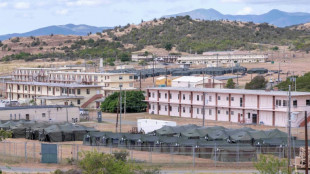
-
 Iran protest toll mounts as government stages mass rallies
Iran protest toll mounts as government stages mass rallies
-
Gold hits record high, dollar slides as US targets Fed
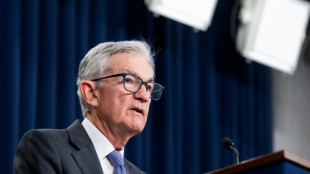
-
 Cuba denies being in talks with Trump on potential deal
Cuba denies being in talks with Trump on potential deal
-
Scientists reveal what drives homosexual behaviour in primates

-
 Venezuela releases more political prisoners as pressure builds
Venezuela releases more political prisoners as pressure builds
-
15,000 NY nurses stage largest-ever strike over conditions

-
 Rosenior plots long Chelsea stay as Arsenal loom
Rosenior plots long Chelsea stay as Arsenal loom
-
Zuckerberg names banker, ex-Trump advisor as Meta president

-
 Reza Pahlavi: Iran's ex-crown prince dreaming of homecoming
Reza Pahlavi: Iran's ex-crown prince dreaming of homecoming
-
Venezuela releases more political prisoners

-
 Kenya's NY marathon champ Albert Korir gets drug suspension
Kenya's NY marathon champ Albert Korir gets drug suspension
-
US prosecutors open probe of Fed chief, escalating Trump-Powell clash

-
 Russian captain in fiery North Sea crash faces UK trial
Russian captain in fiery North Sea crash faces UK trial
-
Carrick is frontrunner for interim Man Utd job: reports
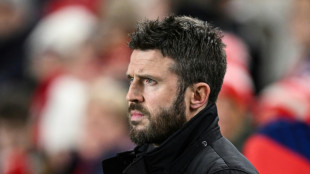
-
 Iran government stages mass rallies as alarm grows over protest toll
Iran government stages mass rallies as alarm grows over protest toll
-
Variawa leads South African charge over Dakar dunes

-
 Swiss inferno bar owner detained for three months
Swiss inferno bar owner detained for three months
-
Heathrow airport sees record high annual passenger numbers

-
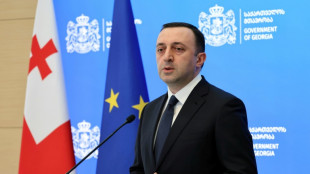 Georgia jails ex-PM for five years amid ruling party oustings
Georgia jails ex-PM for five years amid ruling party oustings
-
Kyiv buries medic killed in Russian drone strike


Drought forces Big Tech to rethink thirsty LatAm data centers
A prolonged drought in much of South America has forced tech giants like Google and Amazon to rework their plans for water-guzzling data centers.
Data centers housing huge servers are springing up around the world to store the flood of data sucked up from billions of smartphones, tablets and other connected devices.
While the centers' massive energy consumption has drawn global scrutiny, the huge amounts of water they use in their cooling systems has received far less attention -- until now.
Cooling equipment represents about 40 percent of a data center's structure.
"There are billions of transistors in a circuit in high-frequency processors. That generates a lot of heat," explained Eduardo Vera, coordinator of the Center for Mathematical Modeling at the University of Chile.
Google's plans for two new data centers in Chile and Uruguay have thrust the issue of water consumption into the spotlight.
The company is planning to build its biggest data center in Latin America in the Santiago suburb of Cerrillos.
The initial plans for the $200 million project included a cooling system that would consume a staggering seven billion liters (1.85 billion gallons) of water per year, equivalent to the annual consumption of the suburb's 80,000 inhabitants.
But a more-than-decade-long drought in Chile has dampened local enthusiasm for the mega-project.
In January, an environment court ordered Google to revise its planning application to cut back water consumption.
Last month, the company -- whose first Latin America data center in Quilicura in northern Santiago soaks up about one billion liters of water per year, the equivalent of 285 Olympic swimming pools -- unveiled a newer much less water-intensive cooling model for the Cerrillos center.
Google said the new facility would use air cooling technology, reducing its water use to a minimum.
"They fought us (...) but finally they changed the cooling system and we set a precedent," Tania Rodriguez, from the non-governmental Community Socio-Environmental Movement for Water and Territory, told AFP.
- Becoming 'climate-conscious' -
A month before Google announced the changes to its Chile plans, environmentalists in Uruguay had won a similar victory.
When the company in 2019 first announced its $850 million investment in a center around 30 kilometers (20 miles) from the capital Montevideo, it predicted it would use a cool 2.7 billion liters of water a year.
But after a record drought in 2023 brought the country's drinking water supply to the brink, the company went back to the drawing board and opted for more expensive air cooling technology.
Asked about the changes, the California company told AFP it was adopting "a climate-conscious approach" to "minimize climate impact and use natural resources responsibly."
- Betting on data -
Chile's government has set its sights on attracting billions of dollars of investment in the country's data center industry, touting its stability and strong internet connectivity as assets.
President Gabriel Boric in June announced plans to more than double Chile's current park of data centers from 22 to 50.
Science and technology minister Aisen Etcheverry told AFP their water consumption would be "practically zero."
Will Hewes, head of water sustainability for Amazon Web Services (AWS), which plans to open two data centers in Santiago, told AFP the firm aimed to make all its data centers "water-positive" by 2030, meaning it would conserve or put back more water than it uses.
At existing data centers like Chile's Quilicura, however, the water will continue to flow in one direction -- from the ground to the data center.
"Because data centers operate 24/7, it's very difficult for them to change their cooling system once they are already built," said local environmental activist Rodrigo Vallejos.
N.AbuHussein--SF-PST



